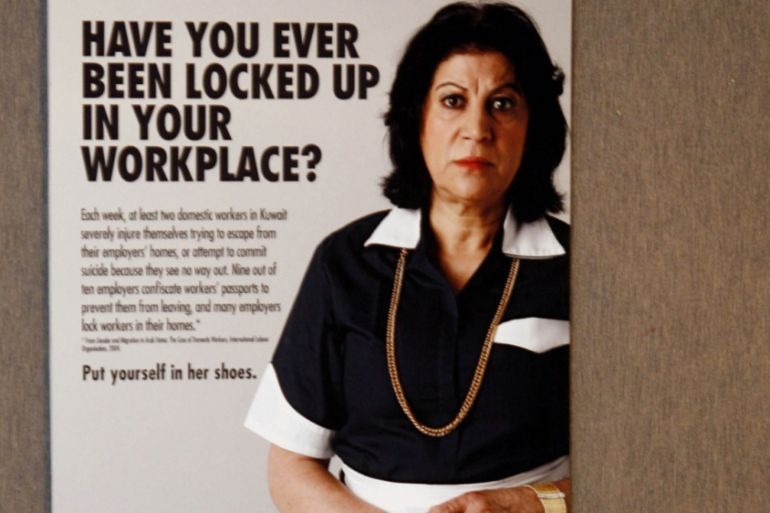Kuwait sets minimum wage for domestic workers
The country becomes the first in the Gulf to regulate the work conditions of domestic staff through legislation.

Kuwait has become the first Gulf Arab country to set a minimum wage for its hundreds of thousands of domestic servants.
A notice published on the Kuwaiti Interior Ministry’s website on Thursday listed the minimum salary as 60 Kuwaiti dinars ($198) a month.
Keep reading
list of 4 itemsAustralian war crimes whistleblower David McBride jailed for six years
Will Israel’s war on Gaza sway South Africa’s election?
Masked Tunisian police arrest prominent lawyer for media comments
|
|
Kuwait is the first country in the Gulf to regulate the work conditions of domestic staff through legislation and rights groups have urged others to follow suit to tackle widespread abuses.
The decree, which sets out measures to implement a landmark law adopted by parliament last year, also requires employers to pay overtime for any extra hours worked.
It grants maids the right to a weekly day off, 30 days of annual paid leave, a 12-hour working day with rest, and an end-of-service benefit of one month a year at the end of contract.
The estimated 600,000 domestic servants in Kuwait are among at least 2.4 million working in homes across the Gulf. They are not covered by ordinary labour legislation.
Reports of abuses
Human Rights Watch (HRW) and other groups have reported widespread abuses, including non-payment of wages, long working hours with no rest days, physical and sexual assault, and no clear channels for redress.
HRW has repeatedly urged Gulf states to reform their labour laws to cover domestic servants and to provide them with “equal protections” available to other workers, in addition to a revision of the kafala system.
The kafala system, or sponsorship, has been criticised as a form of bonded labour or even slavery.
It restricts most workers from moving to a new job before their contracts end unless their employers agree, trapping many of them in potentially abusive situations.
In November 2014, Gulf and Asian labour ministers agreed on a series of initiatives aimed at boosting protection and improving conditions of employment for foreign workers in the Gulf.